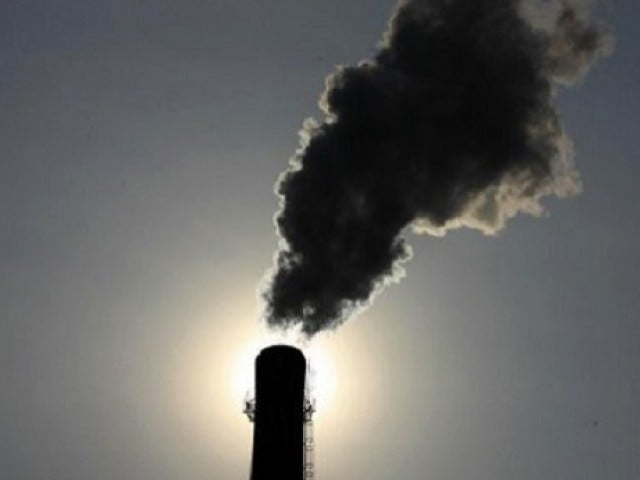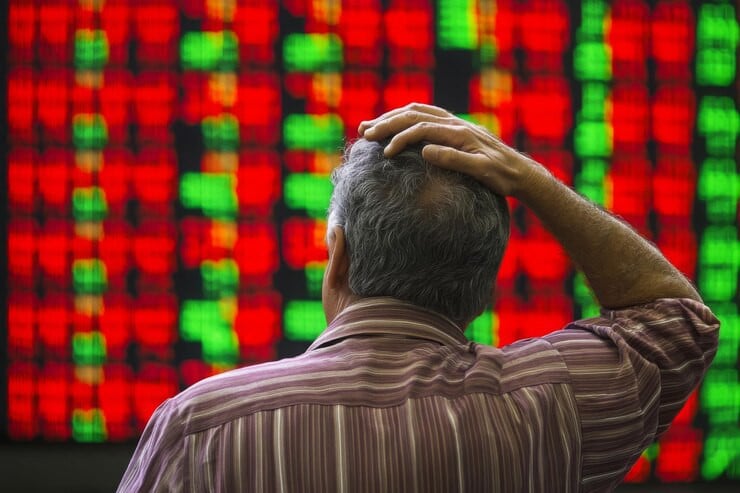KARACHI:
The reciprocal tariffs imposed by US President Donald Trump are not implementable and feasible in a true world. Such tariffs may trigger recession, inflation, a higher cost of living, rising cost of logistics as well as put a burden on US manufacturers and consumers. Above all, the tariffs are hurting the world trade order, which may disappear soon.
Chaotic economic conditions are being witnessed in the US and the rest of the world as the bullying instinct of Trump has taken a heavy toll on the global financial architecture. He is trying to reset the world order by shifting all industries to the US and consumption to Asia. Though it may be good for political mileage, it will prove disruptive.
According to the latest guidelines of the US Customs, smartphones and computers will not be affected by the Trump administration’s reciprocal tariff policy. There are two main points – first, there are many contradictions within the Trump team and in the US and it is very difficult to implement such reciprocal tariffs. Second, other countries have the confidence and ability to defend their own interests.
The changes in the geopolitical landscape, especially the uncertainty and chaos sparked by the Trump team, are severely damaging the trust of large international investors.
The US is the world’s biggest economy with a gross domestic product (GDP) of almost $30 trillion. China, the world’s No 2 economy, has a GDP of about $18 trillion, according to the World Bank. In the case of European Union, the total value of the economy is around 17 trillion euros, or about $19 trillion.
According to World Trade Organisation (WTO) Director General Ngozi Okonjo-Iweala, there are 166 members of the organisation and the US accounts for 13% of the world trade, while the rest of the trade takes place among other members of the WTO.
The CNN reports Trump has repeatedly claimed that other countries have been “ripping off” the US for years, despite American growth rates being the envy of the developed world. So far, he has imposed 25% tariffs on aluminium and steel, 25% tariffs on goods from Mexico and Canada that aren’t compliant with a free trade agreement, a massive 145% duty on Chinese imports, 25% tariffs on cars, with separate tariffs on auto parts coming at a later date, and 10% baseline tariffs on all US imports.
These tariffs “will likely slow global economic growth significantly,” Moody’s rating agency said in a recent report. “And the inconsistent approach to policymaking has undermined confidence globally.”
The changes have not only been swift but also deep. “These are very fundamental policy changes. There isn’t a modern experience of how to think about this,” Federal Reserve Chair Jerome Powell said.
His comments sent US stock markets slumping, with investors clearly uneasy about what it means when a usually staid central banker suggests the world economic order is being turned topsy-turvy. Trump ratcheted up his criticism of Jerome Powell, calling for his “termination” for not cutting interest rates quickly enough.
The US administration’s economic unpredictability, political insanity and diplomatic uncertainty has become a “new normal” in global governance, international trade and the economy, promoting a “rule-less” system and de-shaping globalisation and international cooperation. Thus, the reciprocal tariffs are not mere tools; they are also “tremors”, revealing strategic priorities and causing deep fear.
It is written on the wall that the US tariff war will adversely impact its own consumers, increase inflation, spark recession, damage America’s reputation as an ally and endanger the entire global trade system.
Trump – the new “Godfather of illusions” – did not learn any lessons from Brexit and embraced isolation by erecting walls around the US.
Ongoing economic, trade, export, revenue, monetary, fiscal, taxation and numerous social policies of the US government are full of contradictions, vividly reflecting the basic theories and principles of modern economics. Moreover, warnings of many international regulatory agencies, monetary organisations and research publications have dubbed these policies as self-defeating to its own economy, industry and consumers along with self-dangerous to its international stature.
It seems to be a series of political motivations, economic manipulations and trade mediocrities that are forcing the US government and its economic team to impose reciprocal tariffs.
Regional expert and Centre for South Asia and International Studies Islamabad Executive Director Dr Mehmoodul Hassan Khan said many countries had already formed their holistic and comprehensive policies to lessen the impact of the US tariffs by following a multilayered road map consisting of negotiations, rectification of trade surplus by importing more from the US (Pakistan, Vietnam and Indonesia), diversification of export destinations (China, Malaysia, Canada, the EU, Mexico and African countries), joint but mutually beneficial regional response (China-Association of Southeast Asian Nations (Asean), China-Regional Comprehensive Economic Partnership (RCEP), China-BRICS and China-Shanghai Cooperation Organisation (SCO). Therefore, a strong revival of regionalism, free trade agreements, joint ventures and investments would be vital for mitigating the effects of US tariffs.
The US economy is surely marching towards trade isolation, technological degradation, economic recession, political insanity and diplomatic misappropriation.
The counter-measures taken by China, the EU, Canada and many other countries have become a “nightmare” for the US economic team, ignoring any backlash riding on the “Elon Musk Spacex” for the unopposed global dominance. The US numbers game has badly exposed its end game through high tariffs on its allies around the globe.
The Chinese blockade of the US LNG and energy products has badly hit the US economy. The Chinese staying away from the US treasury, stock market and curtailing investments is bursting the souls of “neocons of new capitalism”.
Confidence in the US economy is plummeting as investors dumped government debt amid growing concerns over the impact of the trade war. The US, once a lucrative investment option, is no longer safer, attractive, healthy and productive, severely damaging its liquidity and cash leverage. The US debt bomb is again nearing explosion.
Stock markets around the globe have been falling sharply over the past few days in reaction to the escalating global trade war and fears of tariffs leading to higher prices, further weakening the US economy and investment capacity.
Khan said, “Obviously, the increase in inflation and the threat of recession have forced the US economic team to pressurise the chief of Federal Reserve Bank to change its strategy of a tight monetary policy.
“Furthermore, the budget deficit of the US government is again skyrocketing, further tightening its fiscal or monetary policy options to maintain economic stability and sustainability.”
The US central bank chief would be forced to resign, if the stock market turbulence, economic uncertainty, investment deterioration and bond markets’ free fall continues.
The writer is a staff correspondent



